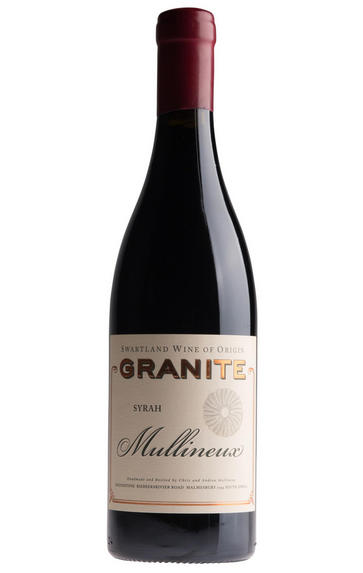
2019 Mullineux, Granite Syrah, Swartland, South Africa
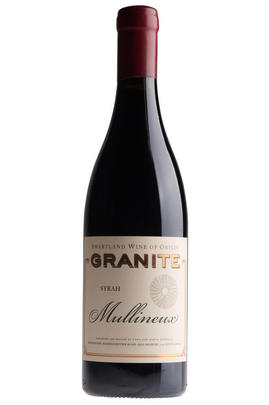
Critics reviews
About this WINE
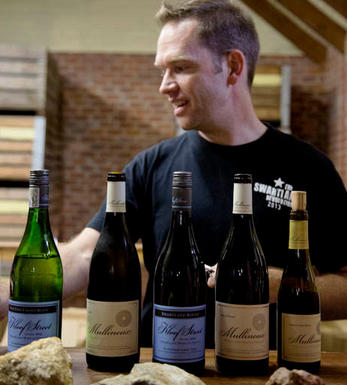
Mullineux & Leeu Family Wines
Mullineux & Leeu Family Wines is one of the stand-out producers in South Africa's budding Swartland region. Winemakers Chris and Andrea Mullineux’s ambition is to bottle wines that are a true expression of the Swartland, and all steps of their winemaking process are taken with this in mind. They work closely with a select group of growers who follow sustainable, reasoned farming practices, as well as owning vineyards at their Roundstone Farm in Riebeeksrivier.
In the cellar, apart from minimal amounts of sulphur, nothing is added to or removed from the wine. They do not make use of any yeasts, acids, tannins, enzymes, or fining and filtering agents. “Leeu” (Afrikaans for “lion”) was added to the name recently to recognise the contribution of a new investor to the project.
Apart from their wonderful Syrah, Chenin Blanc-based white blend and a super-rich Straw Wine made from air-dried Chenin Blanc, fermented and matured in old barriques, Mullineux now has a range of spectacular single-terroir Syrah and Chenin Blanc wines, each of which illustrates the amazing potential of the differing Swartland soils. Volumes of the single-vineyard wines are tiny, so availability is extremely limited.
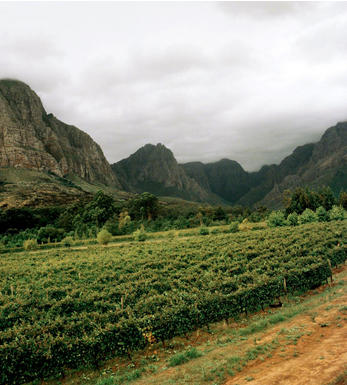
Swartland
After Stellenbosch, the west coast district of Swartland (25 miles due north of Cape Town, between the towns of Malmesbury and Piketberg) now ranks as the Cape's most exciting wine-producing district.
Settled initially by nomadic Khoikhoi from Namibia, the Dutch brought trade and vines to the region in the 17th century. Viticulture was developed only more recently.This contrasts with an ancient geology which has brought a mix of shale, arenite sandstone and granite soils air-conditioned by the Atlantic Ocean nearby.
Chenin Blanc and Shiraz seem to do best, as exemplified by the wines of Eben Sadie and Mullineux.
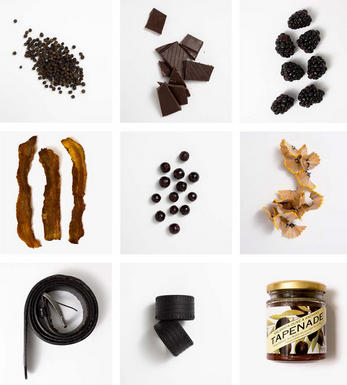
Syrah/Shiraz
A noble black grape variety grown particularly in the Northern Rhône where it produces the great red wines of Hermitage, Cote Rôtie and Cornas, and in Australia where it produces wines of startling depth and intensity. Reasonably low yields are a crucial factor for quality as is picking at optimum ripeness. Its heartland, Hermitage and Côte Rôtie, consists of 270 hectares of steeply terraced vineyards producing wines that brim with pepper, spices, tar and black treacle when young. After 5-10 years they become smooth and velvety with pronounced fruit characteristics of damsons, raspberries, blackcurrants and loganberries.
It is now grown extensively in the Southern Rhône where it is blended with Grenache and Mourvèdre to produce the great red wines of Châteauneuf du Pape and Gigondas amongst others. Its spiritual home in Australia is the Barossa Valley, where there are plantings dating as far back as 1860. Australian Shiraz tends to be sweeter than its Northern Rhône counterpart and the best examples are redolent of new leather, dark chocolate, liquorice, and prunes and display a blackcurrant lusciousness.
South African producers such as Eben Sadie are now producing world- class Shiraz wines that represent astonishing value for money.


Buying options
Add to wishlist
Description
With a deep, intense nose and a lovely mix of red, black and blueberry sweet fruit, the Granite Syrah has a beautiful hint of violets to the aromas alongside more waves of black cherries. The palate is full of succulent fruit but is still tight and needs time to relax. A high level of freshness lifts the wine, but the fruit quality here is so incredibly pure; it is lovely.
There is a savoury dimension running through the wine, too: minerality and layers of granite, although this makes me think more of sandstone in flavour. The tannins are excellent yet still have much grip and begin to dissolve on the tongue like chalk, leaving a slight but gently melting coating behind.
The finish is long and concentrated, combining darker, more savoury elements of wood bark whilst the incredible intensity of red and black fruit rolls on and on.
Drink 2024 - 2044
Catriona Felstead MW, Senior Buyer, Berry Bros. & Rudd (October 2021)
wine at a glance
Delivery and quality guarantee